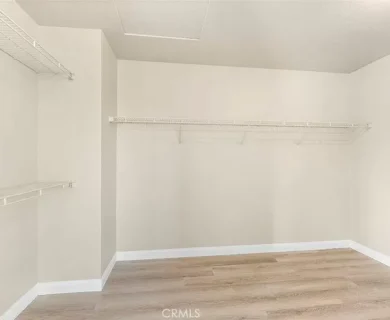
Addiction is a complex, deeply personal struggle that impacts people from all walks of life. Whether you’re just beginning to question your relationship with substances or you’ve been caught in the cycle for years, the first step to recovery is often the hardest. In 12-step recovery programs, Step One reads:
“We admitted we were powerless over alcohol (or drugs)—that our lives had become unmanageable.”
At West Coast Detox, located in Southern California, we understand how daunting and emotionally charged this admission can be. But we also know that understanding and embracing Step One can be a transformative turning point on the path to lasting recovery.
This article explores what Step One truly means, how to recognize powerlessness in your own life, and how accepting this reality can open the door to hope, healing, and freedom.
What Does It Mean to Be Powerless?
To be “powerless” doesn’t mean you are weak or incapable. It means that once you pick up the first drink or drug, you no longer have control over what happens next. Powerlessness is about the inability to consistently stop, moderate, or avoid consequences, no matter how strong your intentions.
Powerlessness also means that despite trying to control or quit your drug or alcohol use, you repeatedly return to the same destructive behavior. It often shows up as broken promises to yourself or others, missed work, strained relationships, legal troubles, financial issues, and mental health crises.
It’s the realization that willpower alone isn’t enough.
Myths About Powerlessness
Many people resist Step One because they misunderstand it. Let’s clear up a few common misconceptions:
- Myth #1: “Admitting I’m powerless means I’m weak.”
Reality: Recognizing powerlessness is actually a courageous act. It requires honesty, humility, and a willingness to seek help. - Myth #2: “I can still function, so I must have control.”
Reality: You don’t have to lose everything to be powerless. High-functioning addiction is very real—and often even harder to detect and treat. - Myth #3: “I just need more willpower.”
Reality: Addiction isn’t a moral failing or a lack of discipline. It’s a disease that affects the brain, behavior, and decision-making.
Signs You May Be Powerless Over Drugs or Alcohol
Wondering if Step One applies to you? Here are some questions to ask yourself honestly:
- Have I tried to stop or cut down but couldn’t stay sober long-term?
- Do I use more than I intended, or use more often than I planned?
- Have I experienced consequences—legal, financial, relational—but continued using anyway?
- Do I lie to others or hide the extent of my use?
- Have I blacked out, overdosed, or put myself in dangerous situations due to my substance use?
- Do I feel out of control once I start?
- Have loved ones expressed concern, and do I feel defensive or dismissive in response?
- Do I make promises to change but fall back into the same patterns?

If you answered “yes” to even a few of these questions, it may be time to take an honest look at whether you’ve lost control.
The Link Between Powerlessness and Unmanageability
The second part of Step One is just as important as the first: “…that our lives had become unmanageable.”
Powerlessness over drugs and alcohol often leads to life spiraling out of control. You may start noticing:
- Trouble at work or loss of employment
- Conflict in relationships or isolation from loved ones
- Mounting debt or legal issues
- Physical health problems
- Mental health struggles like anxiety, depression, or suicidal thoughts
- Feelings of guilt, shame, and despair
Unmanageability means life doesn’t work anymore—not the way you’re living it now. You’re no longer calling the shots. The substances are.
Get Your Questions Answered
Reach out today to get the answers you need about drug and alcohol detox. Our compassionate team is here to guide you through every step of the process and help you take the first step toward recovery.

Why Acceptance is So Hard—Yet So Powerful
Admitting powerlessness can feel terrifying. Many people fear that acknowledging they have a problem means admitting defeat. But the truth is, acceptance is the beginning of freedom.
When you stop trying to control the uncontrollable, you can start focusing your energy on what you can change. That shift in mindset—away from denial and into acceptance—is the cornerstone of recovery.
At West Coast Detox, we see this every day. When our clients accept their powerlessness, their entire perspective begins to change. They stop fighting themselves and start opening up to support, guidance, and healing.
Step One Isn’t About Staying Stuck—It’s About Moving Forward
Step One isn’t the end. It’s the start of something new.
It’s saying: I’ve tried to manage this on my own, and it hasn’t worked. I’m ready to try a new way.
It’s not about shame—it’s about honesty. And honesty, especially with yourself, is the most powerful tool you can bring to the recovery process.
At West Coast Detox, our evidence-based approach helps clients move through this process with professional support, medical care, and compassion. We offer medical detox, residential treatment, outpatient options, and individualized care plans—each designed to meet you where you are and guide you toward lasting recovery.
How West Coast Detox Supports Step One
Here’s how we help clients explore and understand Step One in our treatment program:
1. Medically Supervised Detox
Withdrawal can be dangerous, especially from substances like alcohol, opioids, and benzodiazepines. We provide 24/7 medical supervision to ensure your detox is as safe and comfortable as possible. This first step often reveals just how deeply substances have taken hold—and helps build motivation for lasting change.
2. Therapy and Group Counseling
Our clinical team facilitates individual therapy, group sessions, and psychoeducation. These spaces help you unpack denial, recognize the consequences of addiction, and explore the impact of powerlessness on your life.
3. 12-Step Integration
We introduce the 12 Steps in a practical, nonjudgmental way. Whether you’re new to recovery or have prior experience, we help you understand Step One as a tool for self-awareness, not self-condemnation.
4. Supportive Peer Environment
At West Coast Detox, you’re surrounded by others who understand. Clients often find strength in knowing they’re not alone—and that others have walked this path before and come out the other side stronger.
5. Building New Coping Skills
Understanding that you’re powerless over drugs or alcohol doesn’t mean you’re powerless in life. We help you build healthy coping strategies, emotional regulation skills, and relapse prevention tools so you can regain control in other areas of your life.
Common Fears About Admitting Powerlessness
Many people struggle with internal resistance when confronting Step One. You’re not alone if you’ve had thoughts like:
- “If I admit I’m powerless, I’ll never be strong again.”
- “I don’t want to give up all substances—just cut back.”
- “I’m not as bad as other people I know.”
- “If I admit this, I have to change my whole life—and that’s scary.”
These thoughts are normal. They’re part of the defense mechanisms that keep addiction alive. The key is to explore these fears, not ignore them. At West Coast Detox, we help you face these internal conflicts with compassion, not criticism.
Powerlessness Doesn’t Mean Hopelessness
In fact, it’s the opposite.
Admitting powerlessness over drugs or alcohol opens the door to hope. It means you’re finally ready to ask for help—to accept support, guidance, and a better way of living. Step One may be humbling, but it’s also empowering. It says:
I’m done lying to myself. I’m ready to get better. I don’t have to do this alone anymore.
Final Thoughts: Embracing Step One at West Coast Detox
Recognizing that you are powerless over drugs or alcohol is one of the most courageous admissions a person can make. It’s also one of the most liberating. Step One is not about giving up—it’s about letting go of denial and stepping into a new, healthier version of yourself. At West Coast Detox, we’re here to walk beside you through that process. Our clinical team, addiction specialists, and peer support community are committed to helping you understand, accept, and move beyond Step One toward a life filled with purpose, peace, and long-term sobriety.
You don’t have to keep trying to control something that has already taken control of you.
Admit it. Accept it. And let us help you begin again.
Contact West Coast Detox today to take your first step toward freedom.
























